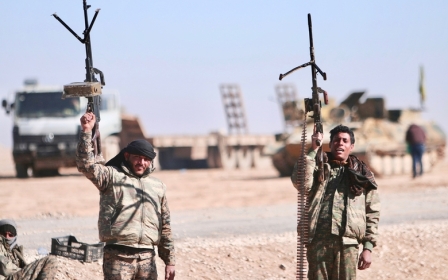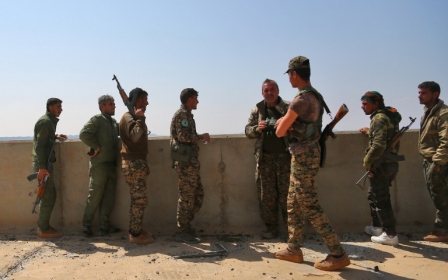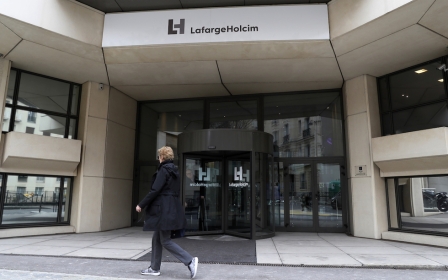US sanctions 271 Syrian scientists and chemists over sarin attack

The US government put 271 Syrian chemists and other officials on its financial blacklist on Monday, punishing them for their alleged role in the deadly chemical weapons attack on a rebel-held town in early April.
In one of its largest-ever sanctions announcements, the US Treasury Department took aim at the Syrian Scientific Studies and Research Centre (SSRC), which it said was responsible for developing the alleged sarin gas weapon used in the 4 April attack.
The attack left 87 dead, including many children, in the town of Khan Sheikhun, provoking outrage in the West, which accused Syrian President Bashar al-Assad of being responsible.
Some of the people blacklisted had worked on Syria's chemical weapons programme for more than five years, the Treasury Department said. The sanction orders US banks to freeze the assets of any employees named, and bans American companies from conducting business with them.
Those designated were "highly educated" individuals likely to be able to travel outside of Syria and use the international financial system even if they may not have assets abroad, administration officials said during a conference call with reporters.
"These sweeping sanctions target the scientific support center for Syrian dictator Bashar al-Assad's horrific chemical weapons attack on innocent civilian men, women, and children," US Treasury Secretary Steven Mnuchin said in a statement.
According to the Nuclear Threat Initiative, a Washington-based think-tank, the SSRC is Syria's leading scientific research centre, with close links to the country's military.
The centre itself was already the subject of two sanctions declarations, in 2005 and 2007, due to its alleged role in developing weapons of mass destruction.
The attack on Khan Sheikhun was also debated in the UN Security Council. But Russia, a close ally of Assad, vetoed a resolution on 12 April demanding the Syrian government cooperate with an investigation of the attack.
Assad has denied the attack, branding it a "fabrication" by the West.
The US Treasury already had imposed sanctions against 18 Syrian officials in January. The sanctions effectively aim to shut those targeted out of global financial networks, making it difficult for them to do business or even travel.
Mnuchin said the administration "will relentlessly pursue and shut down the financial networks of all individuals involved with the production of chemical weapons used to commit these atrocities".
New MEE newsletter: Jerusalem Dispatch
Sign up to get the latest insights and analysis on Israel-Palestine, alongside Turkey Unpacked and other MEE newsletters
Middle East Eye delivers independent and unrivalled coverage and analysis of the Middle East, North Africa and beyond. To learn more about republishing this content and the associated fees, please fill out this form. More about MEE can be found here.




